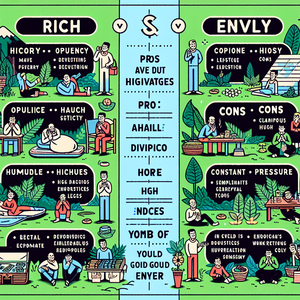From Classroom to Code: How to Transition from Academic Projects to Real-World Software Development

Academic projects often serve as the first foray into software development for many students. They allow students to experiment with coding, problem-solving, and project management. However, the skills honed during these projects can sometimes feel disconnected from the demands of a professional setting. The key is to recognize and articulate the relevance of these experiences.
Translating Technical Skills
New graduates should focus on translating their technical skills from academic projects into language that resonates with employers. This means not only listing programming languages and tools used but also explaining the context and outcomes of the projects.
Understanding Employer Expectations
To effectively transition from classroom to code, new graduates must understand what employers are looking for. Engaging with industry professionals through informational interviews, networking events, or online forums can provide insights into the skills that are currently in demand.
Building a Portfolio
Creating a portfolio is an essential step for new graduates to showcase their academic projects. A well-organized portfolio not only highlights technical skills but also demonstrates the ability to deliver a project from inception to completion.
Seeking Internships and Freelance Opportunities
Internships and freelance projects provide invaluable experience that helps bridge the gap between academia and the workplace. These experiences allow graduates to apply their academic knowledge in a real-world context, enhancing their resumes and portfolios.
Transitioning from academia to the professional world of software development can be a challenging journey for new graduates. However, by recognizing the value of their academic projects, translating technical skills into employer-friendly language, understanding industry expectations, building a strong portfolio, and seeking out relevant experiences, graduates can position themselves as attractive candidates in the job market.
Front-End React Developer
Tech startups, e-commerce companies, and digital agencies
Core Responsibilities
Design and implement user interfaces for web applications using React.js.
Optimize applications for maximum speed and scalability while ensuring a responsive design.
Collaborate with UX/UI designers and back-end developers to translate designs into functional code.
Required Skills
Proficiency in JavaScript, HTML, CSS, and React.js.
Experience with version control systems like Git.
Familiarity with Agile methodologies and tools such as Jira or Trello.
Mobile App Developer (iOS/Android)
Mobile-first companies, tech giants, and software development firms
Core Responsibilities
Develop and maintain mobile applications for iOS and/or Android platforms.
Work closely with designers to implement user-friendly interfaces.
Conduct code reviews and optimize application performance.
Required Skills
Strong knowledge of Swift (for iOS) or Kotlin/Java (for Android).
Experience with mobile development frameworks like React Native or Flutter is a plus.
Understanding of RESTful APIs and integration with back-end services.
Software Quality Assurance (QA) Engineer
Software companies, tech consultancies, and large enterprises with in-house development teams
Core Responsibilities
Develop and execute test plans and test cases for software applications.
Identify and document defects, working collaboratively with developers to resolve issues.
Automate testing processes to improve efficiency and accuracy.
Required Skills
Experience with testing tools (e.g., Selenium, JUnit) and methodologies (e.g., Agile).
Strong analytical and problem-solving skills, with attention to detail.
Familiarity with programming languages such as Python or Java for automation scripting.
Data Analyst
Financial institutions, marketing firms, and tech companies
Core Responsibilities
Collect, process, and analyze large datasets to extract actionable insights.
Create data visualizations and reports to communicate findings to stakeholders.
Collaborate with cross-functional teams to inform business strategies based on data insights.
Required Skills
Proficiency in data analysis tools such as SQL, Excel, and data visualization software (e.g., Tableau, Power BI).
Strong understanding of statistical analysis and data modeling techniques.
Effective communication skills for presenting complex data in an understandable format.
DevOps Engineer
Tech companies, cloud service providers, and companies undergoing digital transformation
Core Responsibilities
Implement and manage CI/CD pipelines to streamline software deployment processes.
Monitor system performance and troubleshoot issues across development and production environments.
Collaborate with developers and IT operations to improve system reliability and performance.
Required Skills
Experience with cloud platforms (e.g., AWS, Azure) and containerization technologies (e.g., Docker, Kubernetes).
Knowledge of scripting languages such as Bash, Python, or Ruby.
Understanding of infrastructure as code (IaC) tools like Terraform or Ansible.


